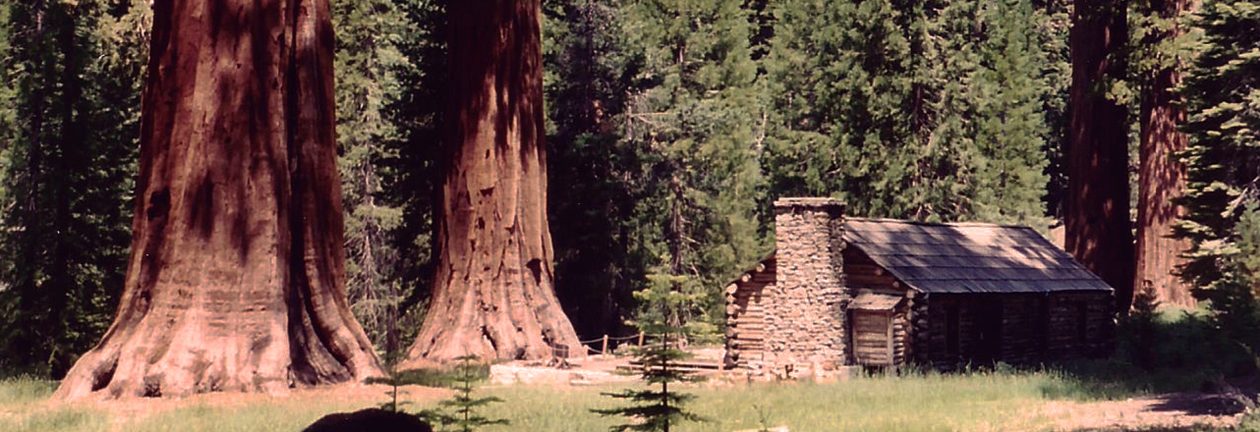Gori, Georgia
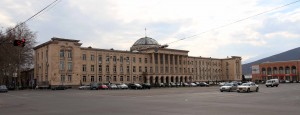
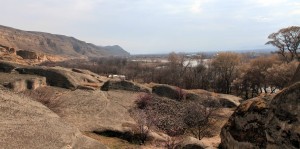
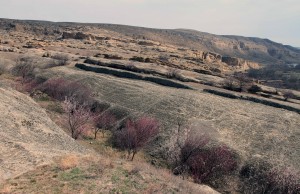
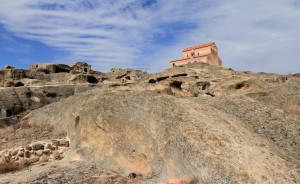
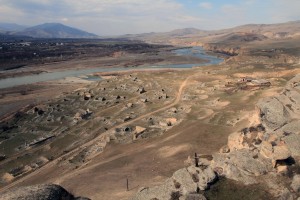
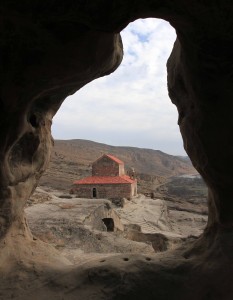
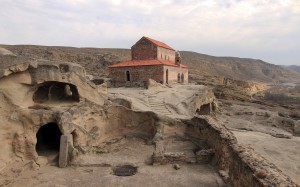
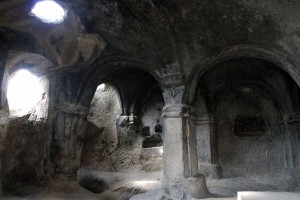
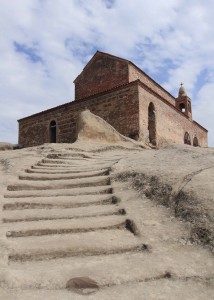
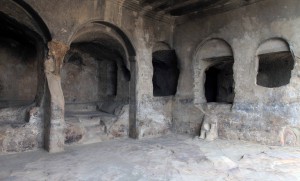
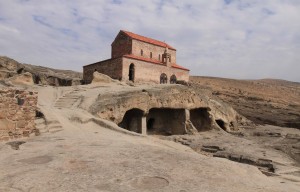
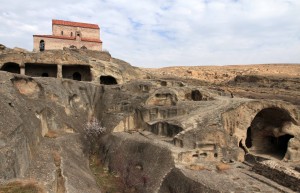
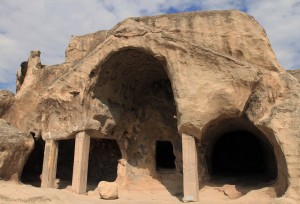
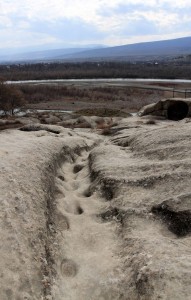
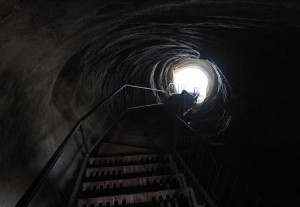
I ended up sleeping for about twelve hours – much to my surprise – and woke up at 10:00. I then dressed, got ready, and packed my bags. I stored my bags in the first floor common area of the hostel and then found the manager in her adjacent beauty salon; I asked her if it was okay to keep my bags in the hostel while I explored the surrounding area before coming back to claim my bags and travel to Kutaisi; she was fine with it and then proceeded to practice her English with me (with the help of her lovely assistant in the salon); she then invited me to the upstairs kitchen to have coffee and cookies with cream cheese; she proceeded to practice some more English with me, asking me a number of questions (e.g. “do I think Georgian women are beautiful?”) whilst we enjoyed our breakfast. Later, her friend came in to the kitchen area and I finished my breakfast; I then thanked her and left the hostel, walking toward the Stalin Museum, to find a taxi to take me to Uplistsikhe (Georgian for “the lord’s Fortress”). I found the taxi driver who had asked me yesterday if I wanted to go to Uplistsikhe and after he gave me the price (twenty lira – five less than what I expected based on research on the internet) I agreed and we drove off to the ancient rock-hewn city. After about twenty minutes of driving, we reached the entrance to Uplistsikhe, I bought my ticket, and agreed with the taxi driver (through makeshift sign-language) that I’d be back at 13:20, giving me an hour and ten minutes to explore the site (which turned out to be just enough time). Uplistsikhe is built on the rocky left bank of the Mtkvari River and contains many structures from the Early Bronze Age to the Late Middle Ages. Upon entering the park, I followed the path to the historical site and immediately climbed up the exposed rock face and up to the rock-hewn steps, halls, and dwellings; I wandered around the site like an eight-year old kid, exploring each crevice and jumping across semi-dangerous gaps; I circled the site counter-clockwise, around the Uplistsuli (Prince) Church (sitting, perched above a ninth- to tenth-century AD three-nave basilica, and the most prominent structure on the site) and spent about an hour, quickly hurrying around to see all that there was to see; unfortunately, the church itself was locked, but I did enter in to all the rock-carved structures and tunnels. At 13:00, I left the site (through the tunnel entrance) and walked to the small museum; after surveying the museum, I met up with the taxi driver and he drove me back to Gori. Once back in Gori, I walked to the hostel, did some online research on how to get to Kutaisi from there, and then asked the hostel manager how I should proceed to Kutaisi; she helped me out by calling a taxi to take me to the main highway north of town and from there I could catch a westbound marshrutka to Kutaisi. A few minutes after placing the call, the taxi came (just after 14:00), I grabbed my bags, thanked the nice lady, and then left to the highway, which we reached in about six minutes. I then paid the taxi driver and walked up to the highway overpass where about six others were waiting for a ride. In no more than three minutes, a marshrutka pulled up, I confirmed that the driver was heading west through Kutaisi, and then loaded my bags and my ass in to the minivan; we then drove west, through some gorgeous Georgian countryside. We did make one pit stop along the way in a river valley before continuing on. The road took us through hilly terrain with winter-affected leafless trees and quite a few trees with recent blooms of white flowers (adding some much needed color to the scenery); we then drove through woods populated with more evergreens and lush grassy areas; overall, I was liking the change in landscape and knew I would enjoy my time in Kutaisi.
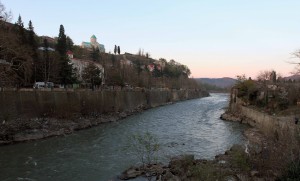
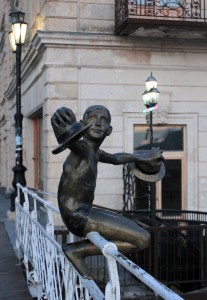
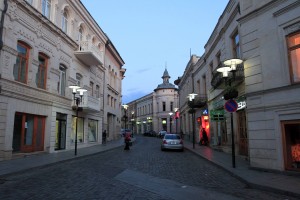
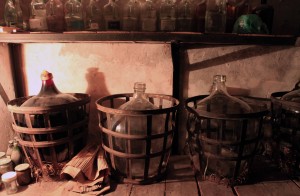
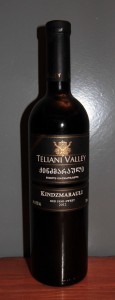
The marshrutka reached Kutaisi shortly after 17:00, I exited the vehicle, grabbed my bags, and then took a taxi to the hostel I chose to stay at (based on reviews/price/location on booking.com). We reached the hostel, I checked in (luckily they had one bed available in the dormitory room), and then was given some apple slices and homemade wine to drink (it reminded me of the Armenian wine I had had, tasting a little too sweet and tart, and not mature nor complex enough to warrant any praise – though I enjoyed the ambrosia nonetheless) – I had read online that the owners of this hostel craft their own wine, which is another reason I decided to stay here. I then spent the next hour drinking their wine and talking with a retired Belgian man before excusing myself and walking in to town to eat dinner. Kutaisi functioned as the capital of the kingdom of Colchis as early as the second-millennium BC and is considered by some historians to be the final destination of Jason and the Argonauts in the epic poem ‘Argonautica.’ I walked across the bridge over the Rioni River and then straight in to the old town; I then found a restaurant where I had a crab meat salad, a Lenten pizza (mushrooms, tomatoes, and cheese with herbs), and some draught beer. After supper, I walked back to the hostel and bought some wine, water, and chocolate along the way. Back at the hostel, I pulled out my camera and took photographs of the wine bottle I was about to consume; one of the managers took notice and called the owner; the owner then unlocked his basement door and invited me down to his wine cellar where he crafts his own red wines, white wines, and Chacha; he then gave me a small glass of Chacha to drink, which had sixty-percent alcohol by volume; he then demonstrated to me the alcohol content of his Chacha by placing a glass alcoholmeter in to one of the large jars of Chacha and, sure enough, it read “60%.” I then thanked the owner and we returned upstairs. I then got to work on typing out today’s journal entry and drinking the bottle of wine I had purchased; it was a Georgian semi-sweet red wine made from Saperavi grapes in the Kvareli specific viticulture district of Kakheti; it tasted of grapes (yeah, I know it sounds stupid to say that a wine tasted of grapes when it’s made of the stuff, but usually it tastes more like other fruits rather than grapes; however, this wine tasted more like Welch’s grape juice than anything else) and had some notes of citrus and red berries (. . . I think). Anyway, I eventually went to sleep after consuming my wine, after typing out today’s journal entry, after having more of the hostel’s homemade wine, and after 04:00.
